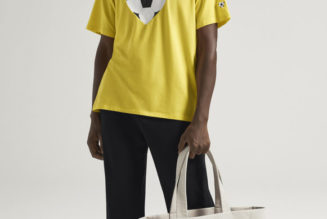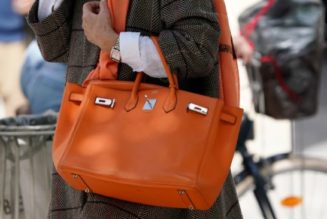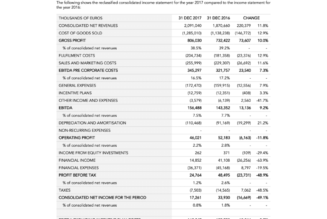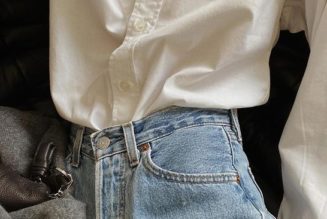
Sustainable fashion
Resale and sustainability were on the fashion forecast for 2023 and so far the predictions have been spot on.
On 7 September, Zara expanded its offering of selling, repairing, or donating second-hand clothing in France, after the pre-owned platform was first made available to British consumers in November 2022. Its aim is to extend the useful life of Zara products, forming part of the retailer’s wider commitment to sustainability and its pledge that by 2030 40% of its clothing pieces will be crafted from recycled fibres.
H&M is similarly set to launch a pre-loved collection at its Regent Street flagship store from 5 October. The collection, which will include a range of pre-owned clothing and accessories from different fashion brands and designers alongside its own H&M collections, is described by the retailer’s UK and IE country manager as giving ‘customers the possibility to explore unique styles…[and] different ways of engaging in a circular fashion industry’. It follows H&M’s partnership with ThredUp earlier in the year, which marked the launch of its first resale marketplace in the US.
Dr Martens will also launch an official repair service in the UK next month in partnership with The Boot Repair Company, as part of its sustainability strategy. Dr Martens CEO Kenny Wilson commented that repair ‘is one of the things that consumers write to me about the most…about old pairs [of shoes] they’ve owned for many years and want to get repaired’. The service comes after a successful trial last year with resale marketplace Depop, and is a precursor to the brand’s US resale trial, due to launch in 2024.
Heightened consumer awareness, environmental and cost of living concerns, and ‘high street fatigue’ are said to be just some of the factors driving resale and sustainability in fashion, and it is clearly at the forefront of retailer’s minds. Just earlier this month, H&M announced it was joining other high street fashion retailers in charging shoppers for online returns in a bid to combat the financial and environmental impact of deliveries and returns, but later U-turned by clarifying it will not charge shoppers who return online purchases in store.
Fast fashion fallouts
US luxury brand Chrome Hearts, which sells clothing, jewellery, homewares and perfume, has brought the latest in a series of lawsuits against fast fashion brand Shein. Chinese-based Shein, which sells low-value clothing worldwide, has seen great success with Gen Z consumers. Its ‘test and repeat’ business model involves trialling a large number of designs for brief periods, and refining its stock based on consumer demand. However, it has faced allegations of copying small designers and, as a result, multiple intellectual property infringement claims.
This month, Chrome Hearts has accused Shein of trademark infringement and unfair competition, alleging that the fast fashion brand has misled consumers through unauthorised use of its trademarked logos by selling accessories with a design that are ‘substantially indistinguishable’ from those used by Chrome Hearts. Chrome has claimed $2 million in damages, and is also seeking to prevent Shein from further producing or selling any infringing goods.
Shein has faced similar criticism from independent designers who allege that the retailer routinely copies their designs and sells them at a fraction of the original price. It is therefore perhaps unsurprising that Shein now faces a growing number of lawsuits. This includes a recent claim brought by three artists and designers under US federal law for ‘committing individual [intellectual property] infringements over and over again, as part of a long and continuous pattern of racketeering’.
However, it is not just the independent designers and luxury brands that have taken action. Earlier this year, Swedish fast-fashion brand H&M sued Shein in Hong Kong, alleging infringement of its copyright and trademarks, including clothing and swimwear. Meanwhile, fellow fast fashion Chinese retailer Temu has accused the company of anti-competitive behaviour in the US market.
A spokesperson for Shein has commented that the brand ‘takes all claims of infringement seriously, and….[it takes] swift action when complaints are raised by valid IP rights holders’. Clearly though, the phenomenon of fast fashion is shaking up the retail industry and concern is spreading across the field.
Birkenstock plans US IPO
Birkenstock has recently unveiled its plans for an IPO on the New York Stock Exchange in early October. L Catterton, the US based private equity firm which has been partnered with French luxury conglomerate LVMH and Groupe Arnault since 2016, purchased a majority stake in the German shoemaker for $4 billion in 2021.
The brand has enjoyed success in recent years reporting revenues of $781 million in 2020, jumping to $1.3 billion in 2022, as well as a recent surge in publicity due to its appearance in the Barbie movie. Whilst the brand sees itself as ‘rejecting formal dress culture’, Birkenstock has previously partnered with luxury fashion houses such as Dior and Manolo Blahnik. The close ties with LVMH and the upcoming IPO could see Birkenstock extend its existing line of luxury partnerships and increase its international growth.
In recent months, it was feared that confidence in stock market listings was low amid an extended downturn in IPOs, but the announcement of Birkenstock’s proposed IPO – which followed a listing announcement of direct-to-consumer beauty tech brand Oddity – could be a sign of things changing in the US market. It remains to be seen whether the recent popularity surrounding Birkenstock will support them through a successful IPO.
London Fashion Week 2023
London Fashion Week took place between 15 and 19 September and this year, in addition to the traditional catwalk format, attendees experienced an array of immersive performances. Vogue World: London returned to the capital for the second time. A celebration of the British performing arts, the one-night, 37 minute show took place at the historic Theatre Royal Drury Lane and incorporated opera, ballet, contemporary dance, Shakespeare and musical performances. Tickets for the Fashion Week opener started at £150, with net proceeds going to London-based performing arts organisations and theatres. Matty Bovan, a designer known for upcycling materials into new clothes, similarly invited his front row guests to a backstage dinner whilst his fashion show took place around them. He commented that attendees were ‘going to be literally embedded in the live creative backstage show hub… I love the idea of subverting what a show is, and how people consume fashion in movement’.
Both events seem to evidence the growing trend of a new hybrid between performance and fashion – as Patrick McDowell put it, the ‘original purpose of the fashion show has completely changed…It’s about a kind of spectacle’.
In similar sentiment, Bond Street tube station was transformed into ‘Burberry Street’ for the duration of the week. Bond Street, one of London’s most popular shopping spots, is where Burberry’s recently refurbished flagship store is located. The tube station was temporarily renamed and its signs painted in Burberry’s iconic knight blue as part of the brand’s new ‘Burberry Streets’ takeover campaign, debuting in London before travelling to Seoul and Shanghai next month. The promotion, which has seen Burberry set up different pop-ups and experiences, also included a takeover of a North London cafe and travelling food truck during London Fashion Week. The brand has since faced criticism for confusing London Underground travellers and somewhat distastefully pairing working class culture with high-end luxury during a cost-of-living crisis.








